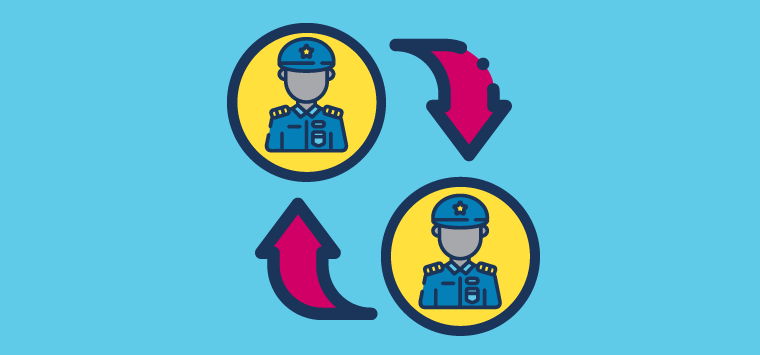How the Roles of Security Guards are Continuing to Change
Support your security guards and your business with mobile software that meets your changing needs.
Hiring in the security industry is back up, but the roles of security guards are changing as a result of the ongoing global crisis. Security guards are now responsible for COVID-19 regulation enforcement at their job sites.
Here are some major changes that are likely going to stick around, at least for the foreseeable future, and how your security guard tracking software should support them.
Health Screenings and Visitor Temperature Checks
Security officers are experiencing an extension of regular visitor management security protocols, particularly in commercial office spaces. They’re being asked to administer temperature checks and complete screening forms for visitors entering job sites. Additionally, most states are passing down guidelines requiring companies to screen their employees at the start of every shift, including temperature checks, symptoms and potential exposure. Having mobile-ready screening forms available to your security guards can shorten screening times and provide efficient data logs.
COVID Policy Enforcement
In addition to the new entrance protocols, security officers are also being tasked with enforcing new policies and procedures like mask mandates and denying entry to visitors based on the above screening questionnaires. And in other cases, they might be covering new types of job sites with new or different policies as demand shifts toward schools, medical facilities, essential shopping centers and stores and pop-up testing sites. Support your security guards as they transition into these roles with a mobile solution. With mobile access, they can view these new policies and remain up to date on what their new job entails while on site.
Additional Training Needs
Your security guards are facing a lot of new uncertainties and must be properly trained on how to implement and maintain changing regulations at their various job sites. The new entrance protocols or policies mentioned above might require some special training. They may even have new uniform requirements like personal protective equipment or PPE like masks and gloves that they need to be informed about. Flexible messaging tools will keep your guards connected and in the loop when things change at their sites. Also, look for a software that offers mobile access to HR and compliance forms so your guards have on-the-go references to new crisis-related policies, certifications and compliance documentation.
Paperless mobile forms are another way to quickly and easily collect and record any accompanying information your guards may be responsible for. Not only does this better support your guards and help them perform their job, but it also provides you with transparent reporting that you can use to improve your operations and provide additional assurance to your customers.
Providing tools that support them on the job does more than reinforce your business practices and compliance — it also shows them you fully support them and take their health, safety and dedication seriously. For additional information on navigating your business through a time of crisis with technology, download the Using Technology to Help Your Security or Cleaning Business During a Crisis eBook.

